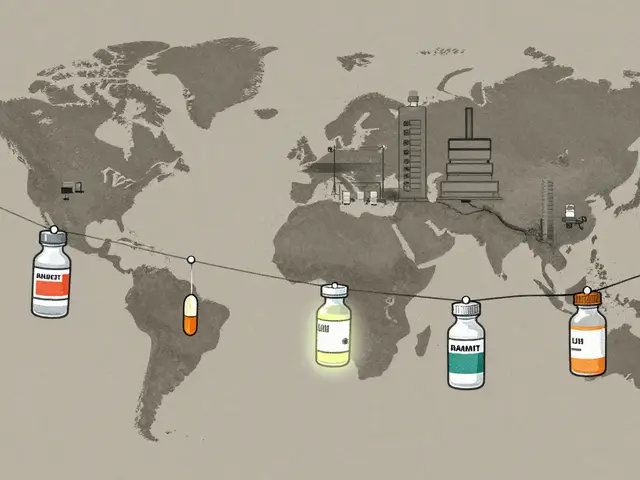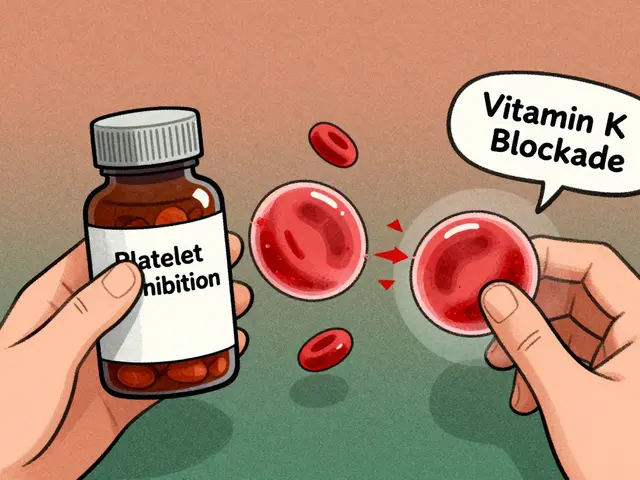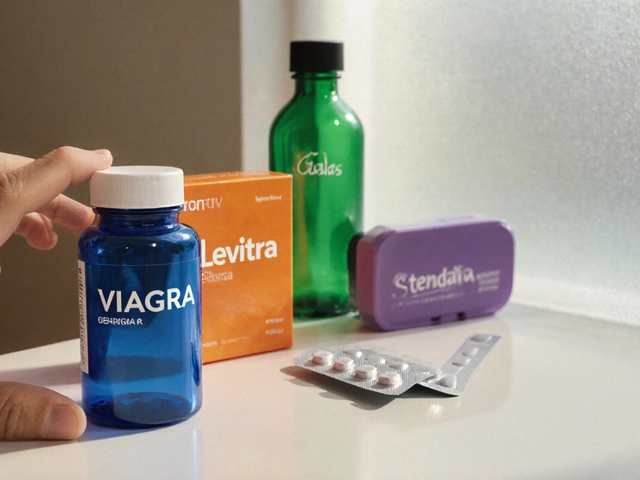Depression medications: practical guide to types, side effects and safe use
Finding the right depression medication often feels like trial and error. Some drugs lift mood within weeks, others take longer, and side effects differ from person to person. This page helps you know the main types, what to expect, how to stay safe, and simple steps to discuss options with your doctor.
Common types and what they do
SSRIs (selective serotonin reuptake inhibitors) — examples include sertraline and fluoxetine. They’re usually first choice because they’re effective for many people and have a predictable side-effect profile: nausea, sleep changes, or sexual side effects that often ease after a few weeks.
SNRIs (serotonin–norepinephrine reuptake inhibitors) — like venlafaxine and duloxetine — can help when SSRIs aren’t enough. They may cause similar side effects plus possible increase in blood pressure for some people.
Tricyclics (TCAs) — such as trimipramine — work well for certain types of depression but carry more risk of dry mouth, constipation, and heart effects. They’re often used when other options fail; your provider may order heart monitoring if needed.
MAOIs (monoamine oxidase inhibitors) are effective but need strict dietary rules and interaction checks. They’re less common now but remain useful in specific cases.
Atypical antidepressants (bupropion, mirtazapine) target different brain chemicals and can help when other meds haven’t worked or when side effects like low energy or insomnia are a problem.
How to use them safely and what to watch for
Start low, go slow. Most providers begin at a low dose and raise it gradually. Keep a short daily log of mood, sleep, appetite, and side effects for the first 6–8 weeks — that record helps your prescriber decide whether to adjust the dose or switch drugs.
Avoid sudden stops. Stopping some antidepressants abruptly can cause withdrawal symptoms. If you want to stop, ask your doctor for a taper plan.
Watch for red flags: new or worse suicidal thoughts, extreme agitation, high fever, racing heart, severe rash, or signs of serotonin syndrome (restlessness, confusion, rapid heartbeat, sweating). Seek urgent care if these appear.
Check interactions. Tell your doctor about all prescriptions, over‑the‑counter meds, and supplements. Some supplements like SAM‑e, rhodiola, or high‑dose omega‑3s can affect mood — and combining them with antidepressants raises risks. We cover safe supplement use in a related article on this site.
Buying meds online? Use reputable pharmacies and confirm prescriptions. Articles on this site explain how to spot safe online sellers and what legal rules to follow. Always keep a list of current medications and show it to every provider or pharmacist you visit.
If a medication isn’t helping after 6–8 weeks at a therapeutic dose, talk to your provider about switching or adding treatments (medication combinations, psychotherapy, or adjuncts like certain atypical antipsychotics). Good communication, careful tracking, and routine check‑ins make it much easier to find the right treatment for you.

- Apr 22, 2025
- Posted by Cillian Osterfield
6 Alternatives to Escitalopram: What to Consider for Your Mental Health
Trying to find an alternative to escitalopram? This article breaks down six different options, comparing how they work, their pros and cons, and what makes each one unique. Clear and honest, it aims to help you and your doctor weigh your choices. You’ll get practical tips and useful facts about how each medication fits different needs. Find out what could be the best match for you.
Categories
- Health and Wellness (72)
- Medications (69)
- Health and Medicine (28)
- Pharmacy Services (12)
- Mental Health (9)
- Health and Career (2)
- Medical Research (2)
- Business and Finance (2)
- Health Information (2)
Latest Posts
©2026 heydoctor.su. All rights reserved





